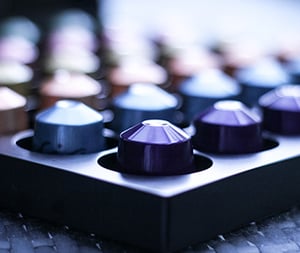Major opportunities for IP on hydrogen innovations
 Although we do not really see or use hydrogen in everyday life yet, the number of innovations in this field is rapidly increasing. This alternative to fossil fuels is one of the resources that plays an important role in the energy transition. All these innovations are good for the planet, but also mean that entrepreneurs in the field of hydrogen need to be extra vigilant when it comes to their intellectual property. There are plenty of opportunities, but also risk.
Although we do not really see or use hydrogen in everyday life yet, the number of innovations in this field is rapidly increasing. This alternative to fossil fuels is one of the resources that plays an important role in the energy transition. All these innovations are good for the planet, but also mean that entrepreneurs in the field of hydrogen need to be extra vigilant when it comes to their intellectual property. There are plenty of opportunities, but also risk.
Innovations involving possible applications of hydrogen
Knowledge about hydrogen is growing exponentially in areas such as the production, storage and transport of this resource as well as possible applications of it in the field of energy supply and mobility. A recent overview shows that there are around 100 hydrogen projects in the Netherlands alone, in which businesses, government and semi-government organisations often work together. More and more entrepreneurs are getting involved in these, as we are also noticing at EP&C. From pipelines to fuel cells and hydrogen-powered boilers; we have already applied for a large number of patents.
We are nevertheless also noticing that the number of patent applications for hydrogen innovations in Europe is not increasing anywhere near as fast as in the US and, in particular, China. When it comes to the global energy transition, it does not, of course, matter who comes up with the best innovations when you look at it from the point of view of the greater good. However, from a business perspective it actually does matter. It is precisely now we are still at the beginning of the tremendous growth that is taking place in the market, that patents can be extremely valuable. Nespresso's patents are a good example of this.
Nespresso's patents
The more mature a technology is, the more difficult it is to get broad protection for an innovation. There are then often many innovations that are very similar but differ in minor details. You can lay those details down with a patent, but such a detailed patent is less valuable than a broad patent. A broad patent makes it more difficult for your competitors to innovate around your idea. This gives you a much stronger position in the market.
For example, Nespresso was the first to have patents on coffee cups. They were able to get protection for their innovation that was so broad that it was not feasible for their competitors to market their own coffee cups for 20 years. It was only after the patents expired that we saw a tremendous growth in alternative cups. Nestlé is still filing numerous patent applications on coffee cups every year, but these patents will never be as broad as they were in the beginning. It is now just about details for which there are often several alternatives.
Coffee cup of the hydrogen industry
So although there are already lots of innovations being made, there is still plenty of room for the Nespressos in the hydrogen market. Because this market is still relatively young, the chances of a broad patent and therefore a valuable investment are greater.
We at EP&C believe that as an innovative entrepreneur you can never consult a patent attorney early enough, but that is particularly true for this market. We will help you assess your innovations, make sure you do not accidentally share knowledge with competitors and get the most out of your idea. And who knows, your innovation might well turn out to be the hydrogen industry's coffee cup.
If you are striving for business success in the hydrogen industry and want to know how I have been able to help other entrepreneurs, then please get in touch with me.

About the author
My father was a successful inventor and I have been raised with technical creativity throughout my childhood. However, I always knew that was not enough for me. I like language, law, business &...
More about Walter >